- F. Scott Fitzgerald and John Lennon - July 1, 2020
- The Artist as a Dissipated Man: Fred Seaman’s “The Last Days of John Lennon” - February 15, 2020
- John Lennon, Alma Cogan, and the Delicate Mechanism of Efficient Beatles Operations - December 21, 2019
To me, Abbey Road is one of the least-dated-sounding Beatles albums—possibly the least dated—but it also sounds the least like the Beatles. Oh, there are Beatles playing on it, I’ll grant you that. The generally impeccable songwriting—that melding of optimism, expression, rawness, craft, and pure joy—could only have come from three particular songwriters. And that’s unquestionably John, Paul, George and Ringo strutting across the cover.
But to me there’s always been something about this album that doesn’t sound like the Beatles, and it’s not just the super-slick production or the fact that Ringo’s drums sound a little thicker than they do on the group’s mid-Sixties records. No, it’s something more intangible than that. I think it’s because John is, to use Cynthia Lennon’s description of his role in their marriage, “present but absent.”

From 1965 to 1968, I believe it’s John who defines what each Beatles record is “about.” As much as I hate reductionist Lennon/McCartney simplifications, I think it worked like this: McCartney approached each new project with new musical ideas, new goals for recordmaking, new schemes to fuse high art with pop, and an insatiable need to explore genres. Without this, the Beatles would have ended sometime after Rubber Soul, because John, for all his gifts, simply was not this kind of a musician. After he discovered Dylan in 1964, his musical tastes, broadly speaking, calcified.
But John did something else, and he did it as instinctively as McCartney came up with melodies, arrangements, and the idea for Sgt. Pepper. As Lennon’s songwriting became more solipsistic and divorced from outside influences, he simultaneously contributed the songs, co-writes, and—do not neglect this—harmony vocals that unified each Beatles album from Rubber Soul through the White Album, giving them their defining character, their vibe.
John usually arrived at the beginning of sessions for each new album with a song that defined what those sessions would be about, and exploded then-current notions of what a pop record could encompass. “Norwegian Wood” was attempted on the first day of sessions for Rubber Soul. It announced to the group that Beatles music could be subtle and sophisticated—lyrically, musically, and in attitude—in ways that not even “Help” or “Yesterday”had presaged. The rest of Rubber Soul walks through the door jimmied open by this first song.
“Tomorrow Never Knows” did the same for Revolver to an even greater degree, setting the stage for sonic, lyrical, and melodic experimentation. Lennon’s other Revolver songs, too, unify Paul’s and George’s compositions; thanks to Lennon’s work the LP has an unexpressed but subtly coherent ethos—ambition, exploration, diversity of viewpoint—and employs a distinct, harder sonic palette. It’s John who keeps Revolver from being a series of very odd, unrelated genre exercises by group members who otherwise aren’t playing together as a band very often.
Despite never making it on the record, “Strawberry Fields Forever” arguably did as much for Sgt. Pepper as McCartney’s whole fake-band concept. This composition established the phantasmagoria and abstracted communication of searching, childlike thoughts that infuse even the lightest tracks on Sgt Pepper with a spirit of discovery and meaning. SFF’s recording process similarly established that new sounds, new instruments, and a willingness to push technology far beyond anything attempted even on Revolver would be the norm. And although he didn’t write many songs, it’s mostly other Lennon contributions, like “Lucy in the Sky” and “Mr. Kite,” that make the album a smilingly caustic Day-Glo appropriation of Edwardian Britain.

Equally important, his enthusiastic participation on Paul’s songs—the answering vocals and lyrics on “Getting Better” and “She’s Leaving Home,” the wizened harmonies on “When I’m 64,” the goofy noises on “Lovely Rita,” the prominent vinegar singing on the two versions of the title track and “With A Little Help From My Friends”—are the finishing touch selling the idea that this is a band concert, conveying the Beatles’ unified, total commitment to the fun of this idea—without which the conceit, already flimsy, would deflate. In other words, during Pepper John’s emotionally present enough to take the opportunities for joy that Paul creates, and make them joyous in the particular way that only he—as the group’s acknowledged leader—was positioned to do.
Lennon kicked off the White Album sessions with the long, slow version of “Revolution” that ended in a discordant, occasionally scary, and often unsettling jam. Even though that version ultimately was scrapped in favor of Revolutions 1 and 9, the White Album can’t escape the shadow of that unreleased version, becoming a haunted, creepy, and weird record on the verge of disintegrating. John also had so many haunting, creepy, and weird songs on White that they color and suffuse the way we perceive the less-menacing songs as well. I guarantee that if “While My Guitar Gently Weeps” were on Let it Be instead, it’d just be excellent guitar rock, rather than a nightmare anticipating the real darkness of “Happiness is a Warm Gun.”

I don’t think Lennon did any of this consciously—or that Paul and George consciously responded to these first-song-of-the-session songs. Rather, I think it was the result of years of group habit, calibrating its emotions and ambitions around Lennon. Even after Paul and George became adults in their own right, something essential remained from Liverpool and Hamburg: Where John was driven to go, they followed. If that language is too Lennon-centric for you, let’s say they attuned themselves to him.
Before Abbey Road, the destinations changed, but the mechanism was always running. “John’s taking Prellies all night and playing like a madman out of some deranged, grief-stricken motivation to become the most famous man in the world” transmogrified into “John’s on acid and wants everything to sound weird,” but so attuned were the group to each other that they absorbed these changes from Lennon and allowed them to direct their energies and ideas, if only subconsciously. (Students of alcoholic family dynamics will note that this dynamic is familiar: when the alcoholic is relaxed and having a good time, everyone else in the family can, too. And as Michael Gerber has eloquently explained elsewhere on this blog, the Beatles fit this pattern: John as the addict, Paul as the caretaker, George and Ringo as the children.)
But in 1969, John was no longer there. This time, there was no Lennon song to kick things off; for almost a month of the sessions, he was physically absent. After he returned, he had very little interest in them, contributing only a few songs, none of which had the ambition or desire to break ground that could define an entire project the way “Norwegian Wood,” “Tomorrow Never Knows,” “A Day in the Life,” or the long “Revolution” could. Side one’s “I Want You (She’s So Heavy)”—the closest to a big Lennon experiment—is too rooted in his relationship with Yoko, not just in its lyrics but in its minimalist approach, to set the tone for much of anything with Paul or George, who probably did not see jumping off points in a composition so closely connected with the ideas and attitude of John’s new collaborator. Lennon played a little rhythm guitar on a few of Paul’s songs, but compared to Yoko, politics and heroin, the Beatles ranked a distant fourth; John seems to have been less interested in the project than any previous album, including the Let it Be/Get Back sessions. Lennon himself famously admitted (or did he brag?) that he “stopped doing all the little things” on Abbey Road. It shows. There are no Lennon harmonies breaking out of the mix on Abbey Road the way there are on Pepper to create a crucial missing link by showing that the most headstrong, cynical, and abrasive Beatle is in on the fun. There are no co-writes. There are no “answering” vocals like on “She’s Leaving Home” or “Getting Better.” None of those little details—no acceptances of Paul’s invitation to create joy—exist. And the album’s sheen, I think, stems from this absence, not just the production.
Don’t get me wrong—I still love Abbey Road. I just tend to think of it as the one and only record by a great group that only made one album.
by Michael Bleicher


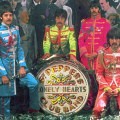

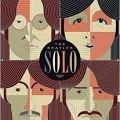
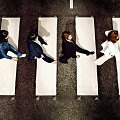
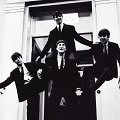
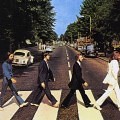
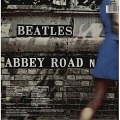
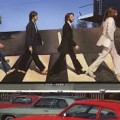
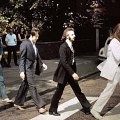

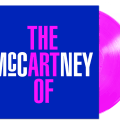
Great piece Michael, I enjoyed it.
It’s interesting that in informal polls I’ve taken with friends, family members, and my Beatle loving friends on the Washington Post comment board,( there’s quite a few of us!), Abbey Road is always in the top 3-5 favorite Beatle albums. My nephew, who is 22, LOVES it. I think it’s because, as you said, it doesn’t sound dated.
Personally, because that disconnect of John is so apparent, I prefer earlier albums. I think Michael Gerber has said in other pieces here, that Abbey Road is sad to him, because it’s the end of the road. I agree. I love the albums up to and including Pepper more, because the guys are tight, as friends as well as band members.
That being said, I’m glad The Beatles were able to go out on such a high note with Abbey Road.
That sounds like something I’d say, @Tasmin. Always one to look on the gloomy side.
Thanks, @Tasmin! Really appreciate it. And I totally agree with you. For me, the true magic extends through Magical Mystery Tour, for the same reason: I love the albums where the guys are friends and you can hear that sense of fun. And on the White Album, they’re still band members, and I can hear that they’re all making this record from the perspective of being Beatles, and nothing else. Abbey Road, though, is a different animal. I think if they had made any more albums, it would have been the template.
I always forget about Magical Mystery Tour!
I don’t know why, it’s a great album.
Something to read and read again. Nice provocative thinking. Can’t stop a defensive note here. Probably necessary before my brain surrenders.
“There are no Lennon harmonies breaking out of the mix on Abbey Road the way there are on Pepper to create a crucial missing link”
‘Because’ to me is an undeniable part of what is typical John and essential to the sound of the album. And ‘\Because’ is about harmonies. The sound of ‘Sun King’ is key to the medley… These two songs create the happiness and fun that is typical Beatles (Paul?).
Ooh, but those lovely harmonies are almost icy, they’re so polished. Compare the exuberance of earlier Beatles harmonies, where Lennon and McCartney’s voices in particular are leaping out of the blend, with the almost imperial sound they get on Abbey Road.
Could this also be the different recording tech, @Michael? The sound of Abbey Road is so different — hadn’t the studio itself gotten an upgrade since White?
Michael, I think you’ve really put your finger on the changed band dynamics here. Lennon was halfway out the door, and that really alters the overall feel and the (lack of) harmonies.
The fact that the band could still PLAY together so well in these circumstances is what amazes me. Paul’s bassline on “Come Together” and the solos on “The End” are particular favorites of mine. It’s clear that they know they really are saying goodbye to the band, but they managed to do it in a way that honors the work they did together (I believe Peter Doggett makes this point, comparing the slapdash of “Let It Be” to the concentrated work of “Abbey Road.”)
“Abbey Road” was the first Beatles record I owned, and I played the second side so much I literally wore it out. And the older I get, the more I appreciate the wounded optimism of “Here Comes The Sun” and the melancholy-infused celebration of the long medley. I suppose to me that “Abbey Road” as an ending feels fitting, even beautiful.
Yeah, the guitar duel at the end of The End is perhaps my favorite snippet of Beatle music. I honestly couldn’t say why.
Something worth mentioning as an addendum to this marvelous piece, thank you Michael, is what caused Lennon’s early absence: his car accident. Though the linked article says he wasn’t planning on attending the sessions (which, gulp!), I half-suspect that the physical trauma and possible concussion had something to do with his lassitude as well. No evidence for that besides 1) that seriously jacked-up car 2) Lennon’s getting 17(!) facial stitches and 3) the high likelihood that none of them were wearing seltbelts. Though seldom mentioned, this car accident was no joke; Yoko was laid up for weeks (hence the bed in the studio), and everybody involved was probably pretty traumatized; the experience was enough to send Julian into shock.
@MichaelGerber That’s a great point, and one that gets glossed over. That would be extremely physically and emotionally draining for anyone; John was also a junkie, and that likely made it even worse. He wasn’t writing a ton that year anyway; it’s likely that he was in a state of shock during Abbey Road. Because up until then, he’s still contributing to the band, even if his powers are much diminished. Alternate history: what if “Cold Turkey” were written in July rather than late August ’69?
Also, good question about the slick recording affecting the harmonies. That may be part of it—“Because” is TRIPLE-tracked, nine voices—but they’re also singing differently. John’s voice usually sound very distinct in the three voice blend. They sound a bit more like The Beach Boys on Abbey Road (who also doubled or tripled their group harmonies), I think.
Rob, I love the long medley but I hear “Because” and “Sun King” as somewhat creepy, rather than fun. The faux Spanish on “Sun King” sounds less goofy and more . . . . incantatory than the kind of silliness of a song like “You Know My Name.”
In fact, to me “The End” is the only part of the long medley that sounds “fun.” Which is somewhat ironic, but also what I think gives it its emotional power.
Really excellent post Michael. I think your anecdotal experience is far from isolated Tasmin – mine agrees with it, then there’s the airplay, the Spotify stats for “Come Together” and “Here Comes the Sun”, CT’s ubiquity in pub band circles etc. Even though neither are Paul songs I suspect that Macca’s ongoing re-evaluation plays its part in the Abbey Road love. Revolver’s cool and arch, White’s sinister and modernist, but Abbey’s poppy, extroverted and polished and I think that’s the way people have liked their music since all the Strokeses and White Stripeses died off.
I’ve never thought about it exactly the way you have before Michael, but I think you’re absolutely right that John set the tone for the Beatles’ sessions. Strawberry Fields explicitly motivated Paul to equal it with Penny Lane, and Day in the Life was the Tomorrow Never Knows of Pepper – the album’s most forward-thinking piece, recorded first but placed last as a culmination. Interestingly, Warm Gun was Paul’s favourite song when White came out and Because was both Paul and George’s pick on Abbey. John’s work just excited them and got their juices going.
John used to get basically all the credit for the Beatles’ experimental edge, and that was wrong, but I feel people who point out that Paul made the tape loops and threw in the orchestral buildups are missing the complete picture too. John’s songs, from Please Please Me right through to Abbey, are more experimental in their very essence than Paul’s – structurally, chordally, lyrically. It was their inherent idiosyncrasy that inspired Paul to take them to the next level by arranging them to their full potential. And their overwhelming atmosphere didn’t just inspire the others’ writing but, as you say, bled over into the surrounding songs by accident.
I’ll have to think more about how I feel all of this affects Abbey. It’s a different beast for sure. Hope you keep posting Michael!
@Justin, thank you very much! Excellent comment. I agree completely with it. The correction to the apostrophe-assassination myth that it was John and those other three guys has arguably crossed into over-correction: the current Internet hot take is that John was just barely competent on the guitar and Paul and George did the real stuff. The reality is that the Beatles wouldn’t have made it past ‘66 without Paul stepping up, but they wouldn’t have been revered and wouldn’t still matter if John’s songwriting hadn’t been so idiosyncratic, instinctually rule-breaking, and disturbed or if John hadn’t actually continued to be engaged, despite abdicating the active leadership role.
To me, it’s heroin that really destroys this dynamic; nothing else, not acid or Yoko or the death of Brian Epstein, was powerful enough to rob John of interesting things to say, or boundary-destroying ways to say them. While I’m well aware that every pop songwriter eventually left their peak years, I don’t think John’s were necessarily behind him but for heroin: witness the massive outpouring in India just months before he started using, and the second outpouring in 1970 while in therapy.
Crazy stuff isn’t it – especially with all the guitar solos he put to tape (not a bad pianist either, and I sometimes think he was the band’s most technically gifted singer). I’ll have to think more about the heroin thing. I wonder if he also kicked it in 1974-5 when he was more of an outgoing booze guy. Might explain why Walls and Bridges is my favourite solo album after POB.
What I’ve read, and believe:
Lennon was a GREAT guitarist, but he had smaller hands, and so wasn’t flashy. Also a GREAT singer. Also, uncharacteristically self-conscious about both of these skills.
I love Lennon’s playing; it’s in the Pete Townshend school of using the guitar as a rhythmic, not melodic, tool. Pete was more musically sophisticated and had bigger hands, but John’s approach isn’t dissimilar at all
the guitar duel at the end of The End is perhaps my favorite snippet of Beatle music. I honestly couldn’t say why.
.
It’s also one of my favorite snippets, and I think it’s because it’s so out of character for them. They weren’t known for guitar heroics, and here they do it with wit and energy, without being ponderous or pretentious like so many of their contemporaries.
The micro-songs Mean Mr. Mustard and Polythene Pam inspire me to imagine an alternate timeline where the Beatles reunite and record a Ram type of album full of tiny songs.
.
The incomparable Tierra Whack recorded a 15-minute album called Whack World. 15 songs, each 1 minute long. It’s one of my favorite things from 2018.
.
Rather than following the trend that began somewhere in the late ’60s (and continues to this day) of four and five minute songs that should really be only two and possibly a half minutes (Elvis’s Suspicious MInds comes to.. uh… mind, but there are millions) it would have been fun to see the Beatles launch a “miniature song” movement.
It’s happening. The 2019 anniversary edition:
https://www.youtube.com/watch?v=m0yJipVqktI
@Sam, it still surprises me that Revolver didn’t get one. Maybe for its 60th birthday? For all that it’s been treated as the new Pepper for the last thirty-odd years (and I do significantly prefer it myself), when it came down to it Pepper was the totem that got all the 50th birthday fuss and kickstarted all the remastering.
I love em both, but Pepper was a watershed for Western culture of the time in a way that’s difficult to even perceive, precisely because it was so successful. Revolver is a fantastic collection of songs by a group at the height of their powers, but Pepper is like Picasso’s Guernica.
Critical opinions are one thing; the opinions of fans and the artists themselves are another; and then there’s how a work interacts with its time, which is to my mind most important of all. That transcends mere excellence.
In 100 years, when historians talk about “the Sixties,” they will show, play and mention Pepper. Not that you guys don’t know this, but I think that’s why they started with Pepper.
Or it could be that Jeff Jones only came on board in time for that one? Or could it be raw sales figures? The ways of Apple are mysterious.
I wish they’d do Rubber Soul.
The original Parlophone release, not the U.S. Capitol version. But I agree, I don’t know why they ignored Revolver. I’m always puzzled by their decisions.
You know, I haven’t heard a single Capitol album. Would like to just to hear the remix jobs. The early material sounds quite thin to these depraved grunge-reared ears.
This looks like a real treat for Abbey Road fans:
https://www.youtube.com/watch?v=GQCfZ4uAAuE
[…] and for the role it plays in the Beatles’ story, too. I agree with Michael Bleicher’s recent post: of all The Beatles’ work it is the least sonically dated. More than that, it’s always […]